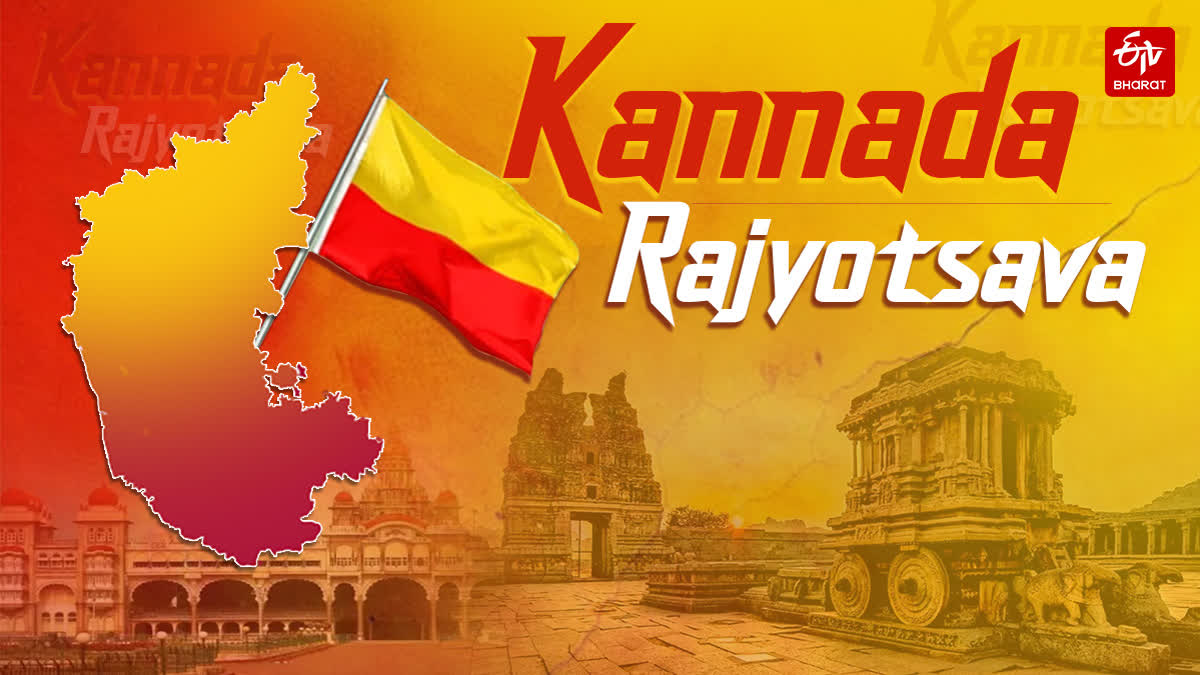Today is Kannada Rajyotsava, which has marked Karnataka’s official creation since November 1st, 1956. This day (also known as Karnataka Day) is far more than a boundary or a date in history. It is a declaration of identity and pride of the people of Karnataka.
The Immortality Of Kannada
To speak of Kannada is to speak of a language that has been whispered through centuries, sung in temples, and carved in stone. One of India’s oldest tongues, Kannada reaches back nearly 2,000 years, with inscriptions that tell of empires and gods, of poets and lovers. It was under the flickering lamps of courts and temples that poets like Pampa, Ranna, and Janna gave Kannada its earliest masterpieces. They wrote epic poems that lifted characters from their myths and placed them before us as human beings. Take Pampa’s Vikramarjuna Vijaya, for instance, where Arjuna of the Mahabharata emerges not as a distant warrior but as a man of conflicts, a character too real to be myth. Then there was Ranna, whose Sahasa Bhima Vijayagives us a version of Bhima that resonates with a humanity we seldom ascribe to epic heroes.
This language holds not only poetry but protest. Basavanna and his compatriots Allama Prabhu, Akka Mahadevi, launched the Vachana movement in the 12th century. The Vachanas broke away from formal poetry, trading rhyme for rhythm, and courtly polish for the language of the common man. Basavanna’s lines echo with the urgency of reform, of equality. Akka Mahadevi’s verses had the voice of a woman who rejected convention for her own mystical path. These Vachanas have not dimmed over time.
A Revival Of Kannada Arts
Leap forward a few centuries, and Kannada’s journey did not halt at ancient odes and reformist manifestos. In the 20th century, it found a renaissance under writers like Kuvempu, whose epic poetry infused Kannada with a renewed sense of identity. His lines in Jaya Bharata Jananiya Tanujateare anthemic, celebrating not merely the beauty of Karnataka’s landscapes but the indefatigable spirit of its people. Following him came U.R. Ananthamurthy, who with novels like Samskaracracked open the hypocrisies of orthodoxy, and Girish Karnad, who brought to life Kannada’s myths and folklore on stage. Through these voices, Kannada literature has moved boldly into the present.
